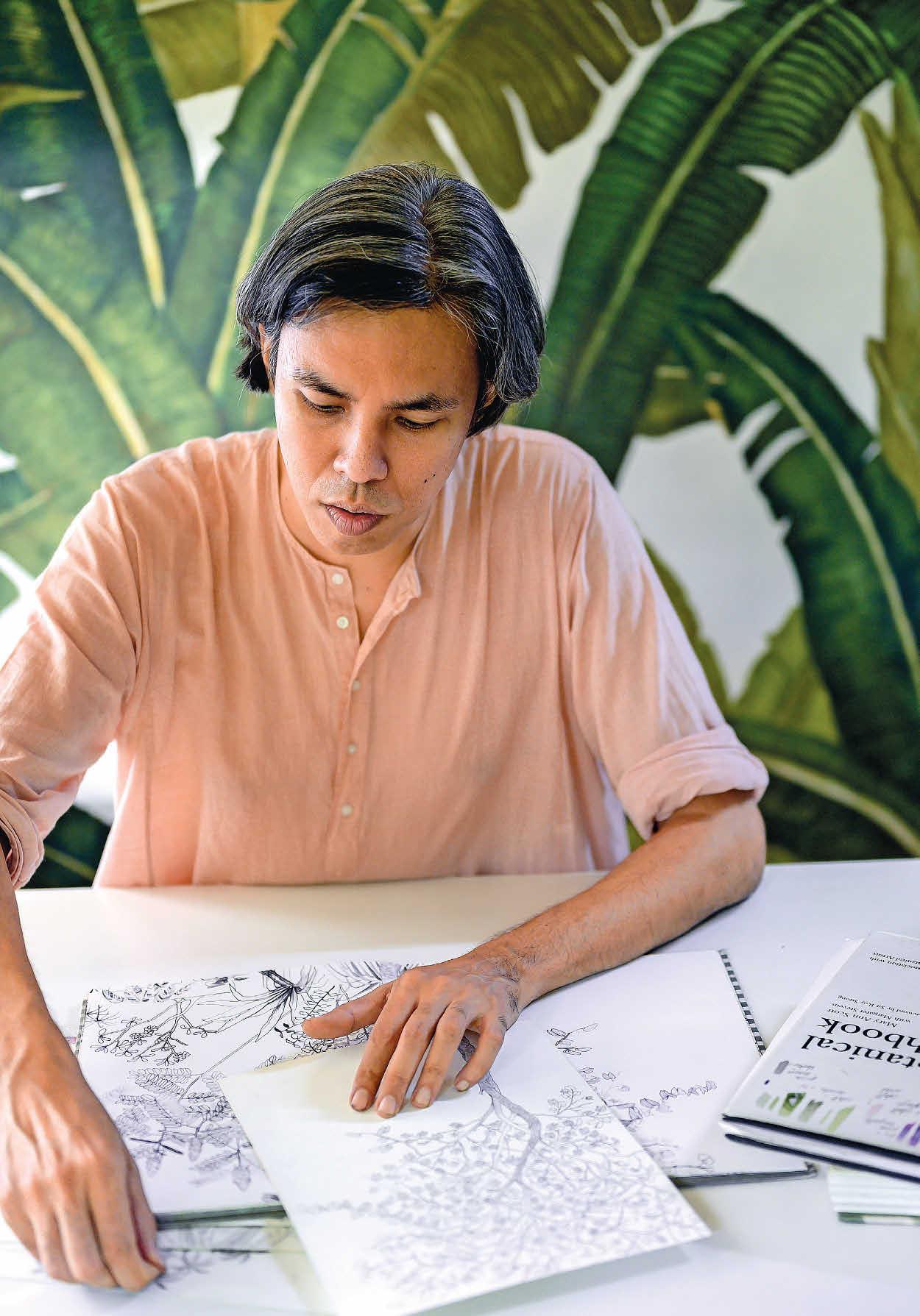
INTERVIEW
Aratrik Dev Varman, Designer
There is also a small, chic cafe in its courtyard that serves the best coffee in town. Tilla repurposes old pieces of textile into festive, celebratory, and high-end garments. Its clothes tell stories of many hands and many histories, using old mirror work, tinsel, or cowrie shell embellishments, just the way Varman intends it to be.
Varman—an alumnus of NID, Ahmedabad, and EnsAD design school, Paris—has lived in Kolkata and Chennai, two cities steeped in tradition and culture. His family hails from Tripura, where he spent his summers growing up. He initiated The Tripura Project a few years ago, in which he collected several pieces of the risha, or a breast cloth worn by Tripuri women woven from an indigenous textile. The project has now turned into a book, The Risha: History in a Narrow Weave, published by Marg (an art book publisher) and released this month. Varman speaks exclusively to THE WEEK about his work and his book:
Q/ Tilla is now 12 years old. Yet it is a relatively small and niche label that functions out of sleepy Ahmedabad.
A/ It is small and niche, because we take time to do things. When one scales up one has to be responsible for the quality one has envisioned. We are a high-end luxury, boutique brand and we like that. That said, we have grown from two tailors to 30. We stay away from techniques that simulate handwork. We believe in handmade luxury and that belief is never going away. We also work with the same set of people, so we have grown as a family.
Q/ What is at the core of Tilla?
This story is from the {{IssueName}} edition of {{MagazineName}}.
Start your 7-day Magzter GOLD free trial to access thousands of curated premium stories, and 9,000+ magazines and newspapers.
Already a subscriber ? Sign In
This story is from the {{IssueName}} edition of {{MagazineName}}.
Start your 7-day Magzter GOLD free trial to access thousands of curated premium stories, and 9,000+ magazines and newspapers.
Already a subscriber? Sign In

What Will It Take To Clean Up Delhi Air?
IT IS ASKED, year after year, why Delhi’s air remains unbreathable despite several interventions to reduce pollution.

Trump and the crisis of liberalism
Although Donald Trump's election to a non-consecutive second term to the US presidency is not unprecedented—Grover Cleveland had done it in 1893—it is nevertheless a watershed moment.

Men eye the woman's purse
A couple of months ago, I chanced upon a young 20-something man at my gym walking out with a women’s sling bag.

When trees hold hands
A filmmaker explores the human-nature connect through the living root bridges

Ms Gee & Gen Z
The vibrant Anuja Chauhan and her daughter Nayantara on the generational gap in romance writing

Vikram Seth-a suitable man
Our golden boy of literature was the star attraction at the recent Shillong Literary Festival in mysterious Meghalaya.

Superman bites the dust
When my granddaughter Kim was about three, I often took her to play in a nearby park.

OLD MAN AND THE SEA
Meet G. Govinda Menon, the 102-year-old engineer who had a key role in surveying the Vizhinjam coast in the 1940s, assessing its potential for an international port

Managing volatility: smarter equity choices in uncertain markets
THE INDIAN STOCK MARKET has delivered a strong 11 per cent CAGR over the past decade, with positive returns for eight straight years.

Investing in actively managed low-volatility portfolios keeps risks at bay
AFTER A ROARING bull market over the past year, equity markets in the recent months have gone into a correction mode as FIIs go on a selling spree. Volatility has risen and investment returns are hurt.